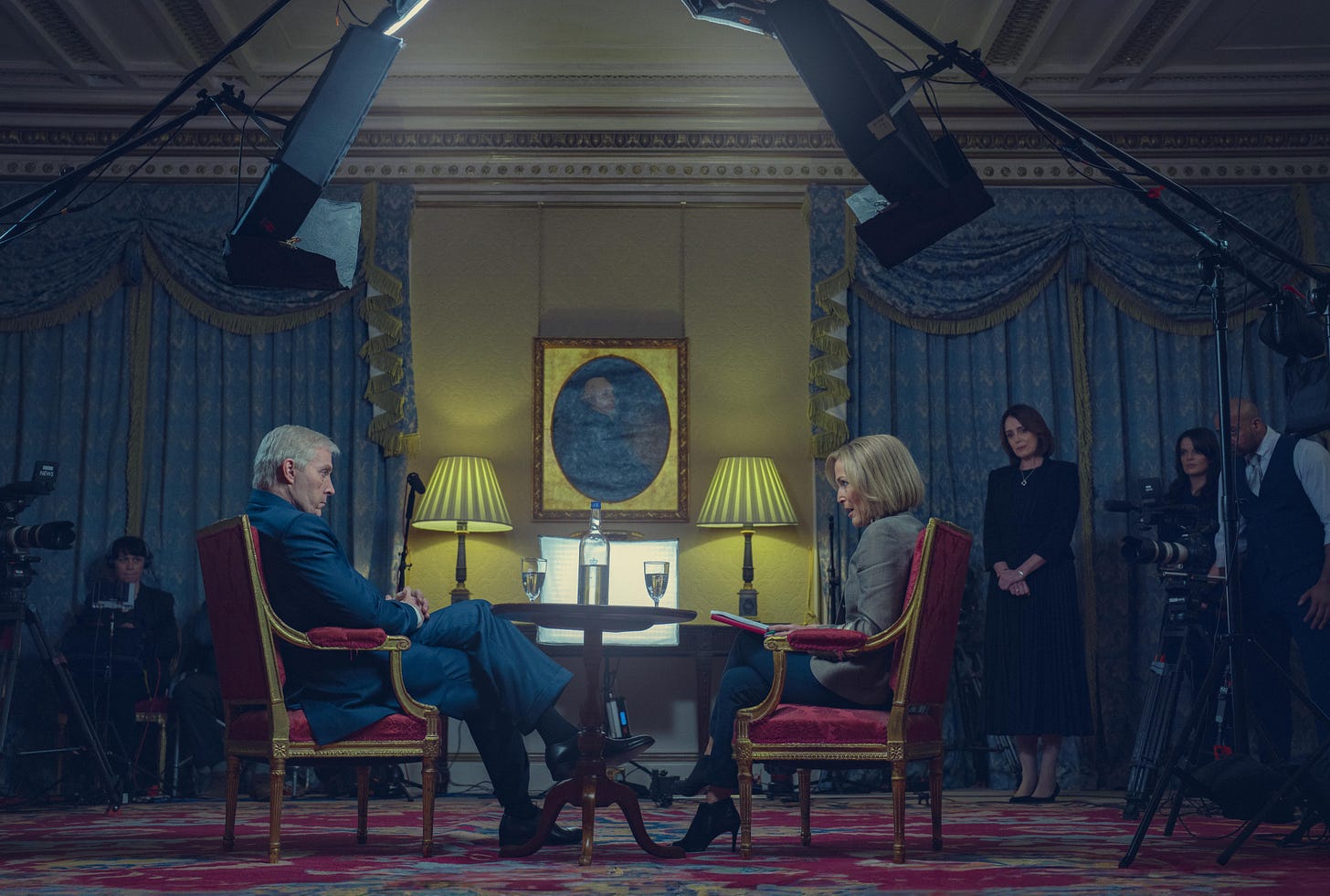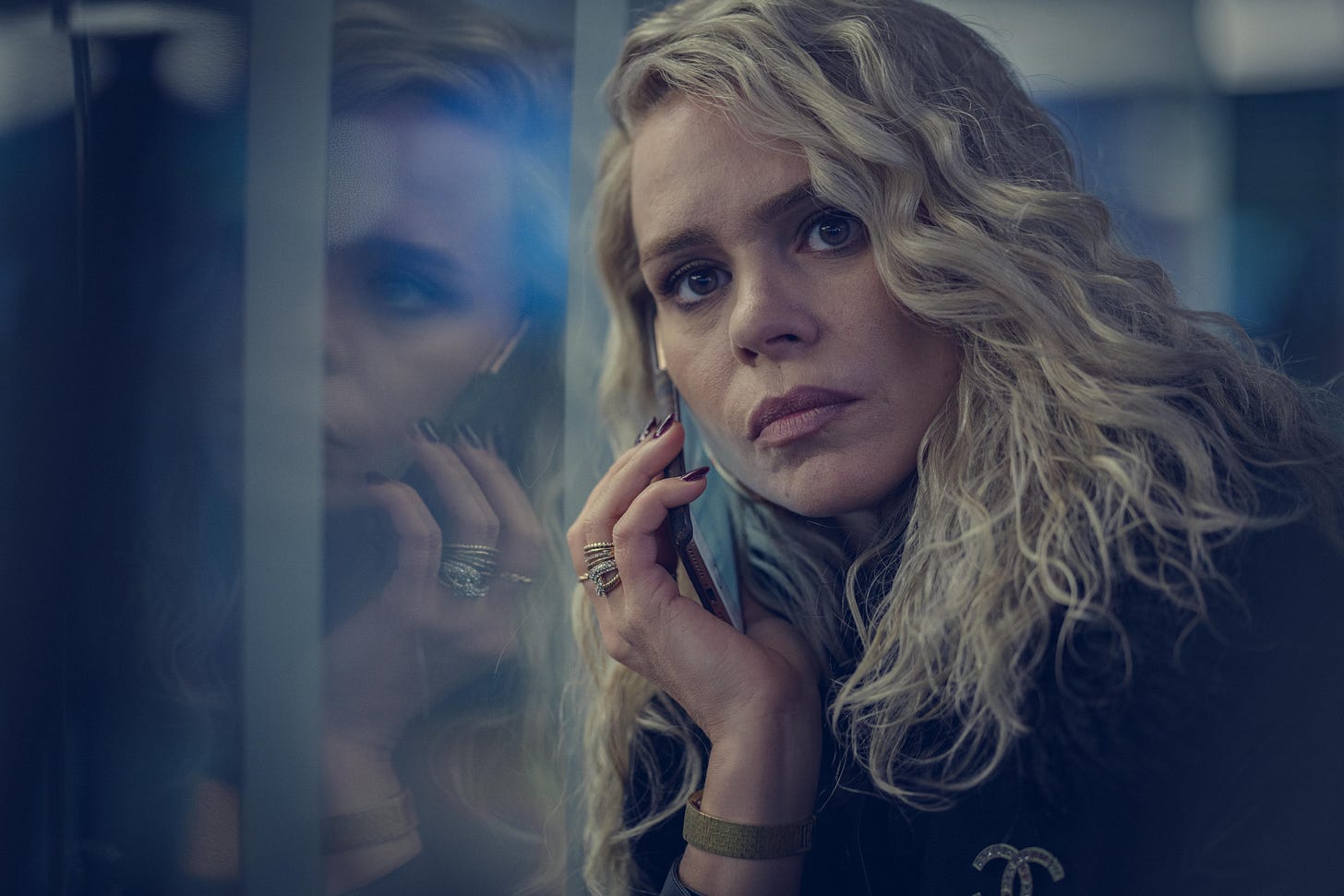The story of who did what when they were with Jeffrey Epstein is something that was always going to be murky. And any possibility of the full truth was likely lost when he died in 2019. But even though the entire story is unlikely ever to be known, there have been journalists working to bring as much truth to light as possible. Phillip Martin’s “Scoop,” now streaming on Netflix, is the story of the journalists who fought to get an interview with Prince Andrew to shed some light on the situation.
The film largely focuses on Sam McAlister (Billie Piper), a producer for the BBC’s Newsnight program, when the team for Newsnight was concerned about losing jobs as the company was undergoing massive firings. They knew that they needed to secure something impressive in order to maintain relevance, but struggled to find something that was new and interesting while also being newsworthy. As Sam was searching for a story, she got in contact with Jae Donnelly (Connor Swindells), a member of the paparazzi who had captured a photo of Prince Andrew (Rufus Sewell) with Jeffrey Epstein (Colin Wells) nine years earlier. Knowing this story wouldn’t go away, particularly with Epstein’s most recent incarceration, Sam worked with Amanda Thirsk (Keely Hawes) to secure an interview between Prince Andrew and anchor Emily Maitlis (Gillian Anderson).
This movie covers a fascinating topic, given that this interview was something rare for the royal family to agree to, and also because of the outcome of Prince Andrew suspending his public duties. But while the interview was fascinating and was recreated brilliantly by Sewell and Anderson, the rest of the story was a bit stale. It is based on Sam McAlister’s book of the same name, and there seems to be a story about McAlister’s desire to be seen as a more serious person, but that aspect was never fully explored, making it seem like an afterthought.
The performances are all good, particularly from Anderson and Sewell, who seemed to have the most demanding roles, given the fame of the people they played. However, nothing stuck out as exceptional in this film, mainly because none of the characters are given much space in which to grow. When an audience already knows the outcome of a movie, what makes the film unique will be the behind-the-scenes aspects that are missing from history. By not spending time with these characters, this film was unable to create the sense of connection necessary to elevate it beyond a simple retelling of events.
The interview had significant implications not just for the women whom Epstein and others abused but also for the job security of the journalists working on it, and that part felt like it was glossed over. Unfortunately, that is the part that separates the film from the interview itself. It’s not a bad film, but it lacks the elements necessary to make it great.
This review originally appeared in The Dominion Post on April 13, 2024.






